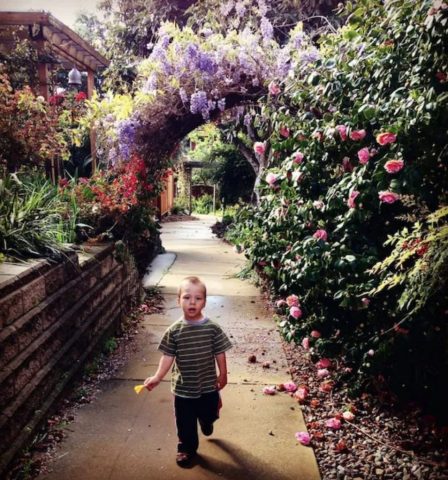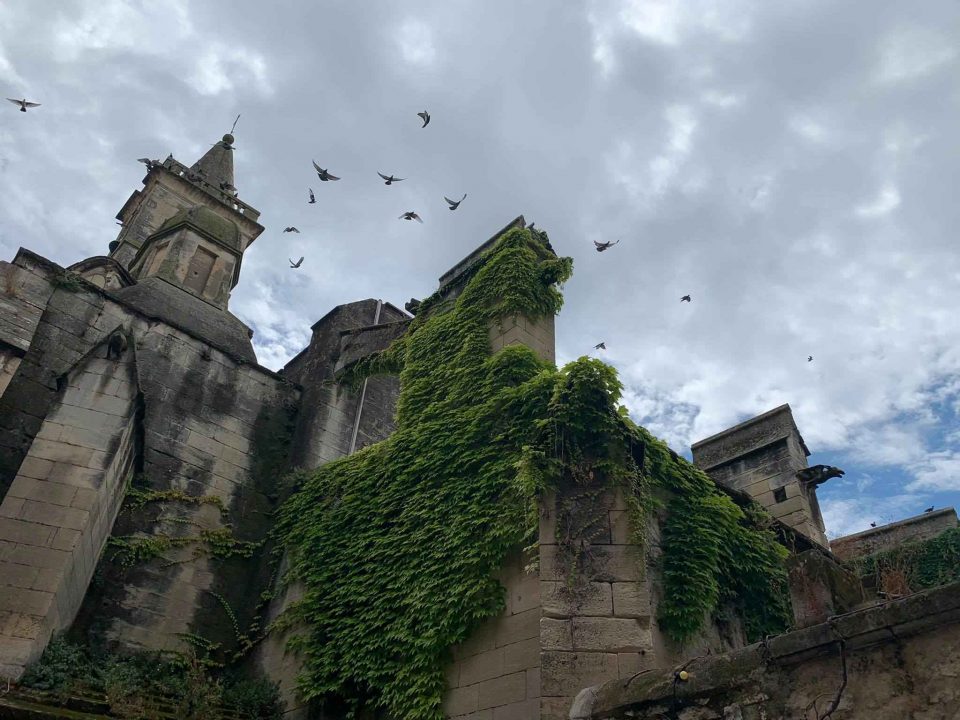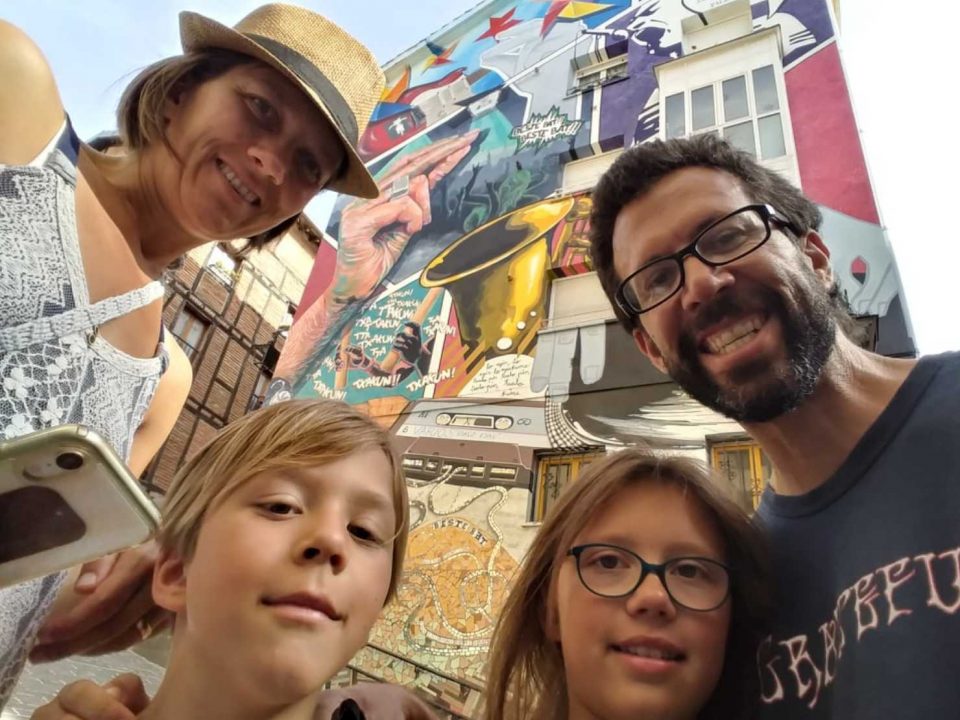
In the Valley of the Yuccas
March 16, 2016
The Easiest, No-Knead Sourdough Bread EVER
March 23, 2016March 14, 2016
Our soil-sifting agrarian lifestyle has begun, here at Tierra Nueva Co-Housing Community, where the first signs of spring are readily apparent, in Oceano, California. Budding blossoms are everywhere, and the weeds are prolific. So there is no shortage of opportunities for us to make ourselves useful.
I got an early start weeding and raking on Saturday morning—pulling weeds and raking leaves—but it didn’t take me long to reach my true passion: the compost pile. Laugh if you must, but I kid you not. I know no earthly source of salvation as potent as the healthy heap of yard waste and kitchen scraps. Where others see only a rotting mound of detritus, I find amazing metaphors of regeneration and great lessons for life.
A thriving compost pile is the cornerstone of a successful organic garden. Its importance cannot be overstated. And when managed properly, this pile can provide the most inoffensive and unobtrusive means of discarding and reusing everything from eggshells to coffee grinds, from apple cores to expired zenias.
Through this beautiful process, something akin to white magic, a kind of resurrection takes place. The old, the dead and the decaying are transformed into the richest, most nutritious soil, the ideal material from which to sprout new seedlings and spawn new growth. In short, compost is the promise of life after death.
It’s easy to imagine our early ancestors building temples and lighting incense to honor the mercurial powers of the compost, alongside nature’s many cycles of death and renewal, from the grain that withers and reseeds itself in due season, to the moon that waxes and wanes with each passing month. But it’s not only about discovering a source of life in the darkest spaces of decomposition and decay, or about celebrating nature’s wonderful powers of transformation. There’s more to it than that.
As with compost, so in life, the key to success is truly found in maintaining the ideal balance. In the case of your compost, that balance consists of a roughly 50-50 blend of carbon-rich brown matter (like dry leaves, straw, wood chips) and nitrogen-rich green waste (like wet kitchen scraps and fresh garden clippings). To be honest, I think the optimal ratio is actually more like 60-40, but I don’t remember which way, and unless you’re heading out to your compost pile with a tape measure and a kitchen scale, it probably doesn’t make all that much difference.
If you gather up a pile of dried leaves and let it sit for three months, it won’t do a thing. On the other hand, if you pile all your fresh, daily kitchen waste into a heap and let it sit, you’ll end up with a stinky mound of slime and a festering colony of maggots. But if you mix both elements, more or less evenly and preferably in layers, keep it relatively moist, and agitate it periodically, something special will start to happen. The flotsam and the jetsam take on a life of their own, and soon they enter a sacred dance of metamorphosis.
Maintaining proper balance requires diligence and attention. Otherwise, things have a tendency to swing like a pendulum, to one unhealthy extreme or another. There are times when we may focus all too intently on earthly matters, the concrete and the carbon. And this might prove financially rewarding, but too much material attachment renders us brittle, lifeless, and spiritually inert. Then there are those who set their sights exclusively on the mystical and ethereal, with their heads in the clouds, among the ozone and the nitrogen. These free spirits may radiate bliss, but often struggle to thrive in the temporal world to which our bodies are undeniably bound.
For best results, we must pursue a middle way. This doesn’t mean compromising the extremes and sitting smugly on the fence, but incorporating both elements, just like with the compost, to produce a synthesis that is both lively and fertile, where earthworms thrive and great ideas are born. This means keeping close tabs on the material and the mundane, to be sure there’s gas in the car and food in the fridge, but without losing sight of the intangible and the irrational, ensuring that there’s always a song in your heart and a dream on your horizon.
The things you can realize while spending a thoughtful day in the garden; it never ceases to amaze me.
“We do not display greatness by going to one extreme, but by touching both at once, and filling all the intervening space.” ~Blaise Pascal
If you want to learn more about the science of what goes on in your kitchen and garden, be sure to check these other articles.
Fred
Since the inception of his first retail business at the age of 23, Fred Hornaday has committed himself to a life of creativity. His newest website, KingOfLimericks.com, features an endless compendium of metaphysical poetry. His other writing projects focus on the future of education, the future of religion, digital nomadism and Canadian immigration.






3 Comments
Wonderful metaphors with compost and life and finding the balance. You have a knack for writing, Fred. Keep it coming!
Thanks Ruth!
[…] All joking aside, there a reason agrarian societies honored their turds. Through a seemingly magical process of transformation, the steaming heaps of solid waste produced by cattle and horses is turned into essential nutrients […]